What is Knowledge Base management? Why does it matter?
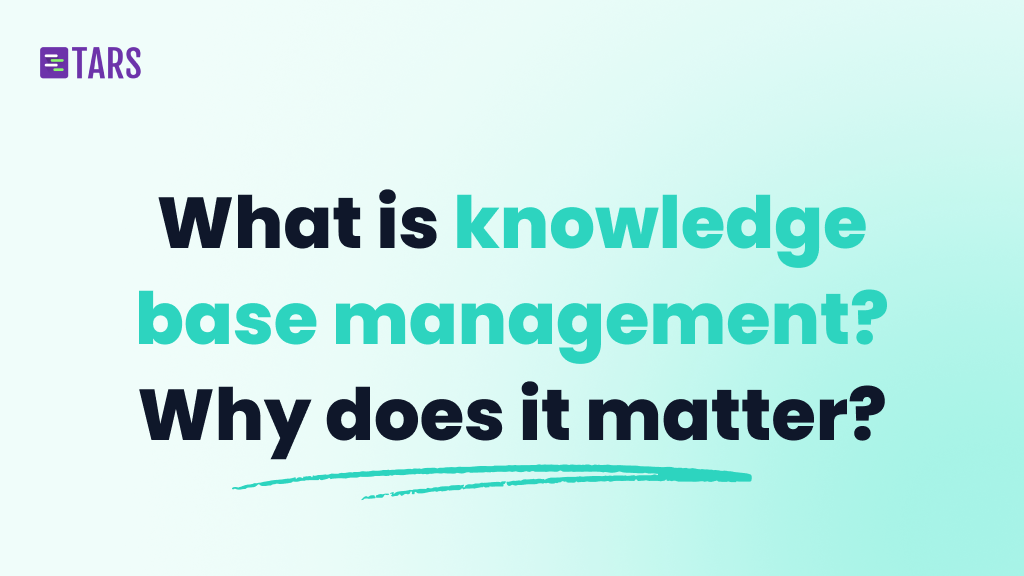
In today’s information-driven business landscape, organizations generate and consume vast amounts of knowledge daily. From customer support solutions to internal procedures, from product documentation to troubleshooting guides, the ability to effectively manage this knowledge can make the biggest difference in building the right solutions.
Companies with well-managed Knowledge Bases build AI Agents that customers want to use. Also, if you want to successfully automate internal processes for your employees, this fact still holds. Companies that skip this step? Their AI Agents give generic, unhelpful answers that frustrate everyone.
So, let’s talk about what Knowledge Base management really means and why it’s probably the most important part of building successful AI Agents.
What is a Knowledge Base?
Think of a Knowledge Base as everything your AI Agent needs to know about your business. It’s not just one thing – it’s a collection of all your information and resources.
This includes:
- Your company website
- PDF documents and manuals
- Internal documentation
- Slack conversations
- Product guides
- Really, any information that helps explain your business, products, or services
The key thing to understand is that your Knowledge Base doesn’t have to be perfectly organized. It can include both structured data (like spreadsheets) and unstructured data (like email conversations). Modern AI Agents can work with both.
How Knowledge Bases work in Tars?
In our platform, you can add your data your directly to Knowledge Bases. Add your website, upload PDF documents, and other files, and once you train and connect knowledge to the AI Agent Gambit, your AI Agent can immediately start using that information to answer questions.
You don’t need to rewrite or move data around. Your Agent pulls information directly from what you already have, which means you can get started quickly without a huge upfront investment.
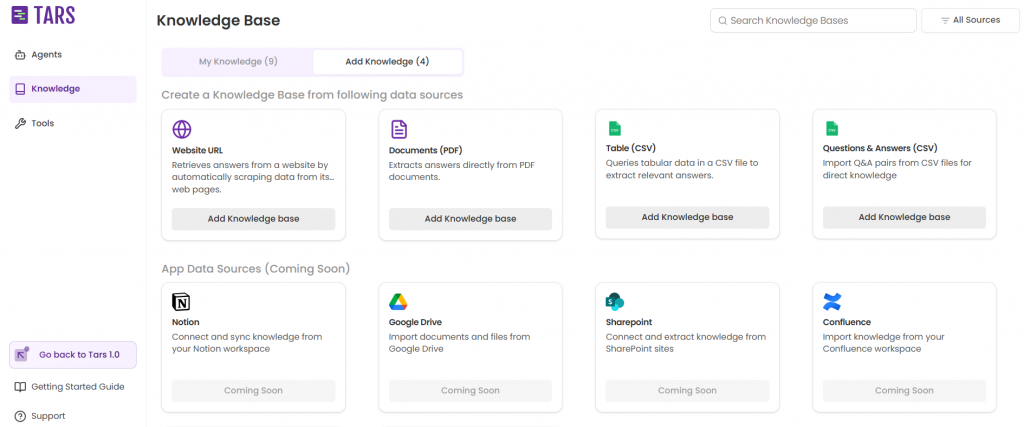
Why Knowledge Bases matter for AI Agents?
Here’s the simple truth: an AI Agent without good knowledge is just an expensive chatbot that is generic in nature.
Without access to your specific business information, your Agent will:
- Give generic answers that don’t help anyone
- Tell customers “I don’t know” way too often
- Send people to competitors because they can’t answer product questions
- Create more work for your support team instead of less
What well-trained Agents can actually do?
When you train an Agent properly on your knowledge bases, it becomes genuinely useful:
Handle common questions instantly: Instead of customers waiting for support tickets, they get immediate answers about pricing, features, policies, and more.
Help customers use your product: Your Agent can walk people through features, explain how things work, and help them get more value from what they’ve bought.
Solve problems: With access to troubleshooting guides and technical docs, Agents can actually fix issues instead of just collecting information about them.
Sound like your company: This might be the most important part. A well-trained Agent doesn’t sound like a robot – it understands your products and speaks with your brand voice.
One great example of a Knowledge Base run AI Agent would be this 24/7 Customer Support AI Agent. It answers product troubleshooting questions from documentation, FAQs, and past support tickets.
powered by Advanced iFrame
Why you need to keep updating your Knowledge Base?
Your business changes constantly. New features launch, policies update, products improve. If your Agent is working from old information, it’s going to give customers wrong answers.
We see companies make this mistake all the time. They set up their Agent once and forget about it. Six months later, customers are complaining that the Agent doesn’t know about new features or gives outdated pricing.
When you need to update your Knowledge Base
Product updates: Every time you add features, fix bugs, or change how something works, your Agent needs to know about it.
New launches: When you release new products or services, update your knowledge base immediately. Customers will ask about new stuff right away.
Found a gap: Sometimes you’ll notice your Agent can’t answer certain questions that customers ask frequently. That’s a sign you need to add more information.
Company changes: New policies, different contact information, team restructuring – all of this affects how your Agent should respond to customers.
The cost of not updating is real. Customers lose trust when Agents give wrong information. Your support team gets frustrated handling tickets that the Agent should have solved. You miss opportunities to promote new features because your Agent doesn’t know they exist.
How to manage your knowledge base effectively?
Good knowledge base management isn’t complicated, but it does require some planning. Here’s what actually works:
Start with user needs
Successful knowledge base management begins with understanding user needs and behaviors. Conduct user research to identify common questions, pain points, and information-seeking patterns. This insight should guide both the initial structure of your knowledge base and ongoing optimization efforts.
Make it a regular process
Don’t treat knowledge base updates like a once-and-done project. Build it into your regular workflow. When your product team ships updates, someone should update the knowledge base. When marketing creates new content, add it to your Agent’s training materials.
We recommend reviewing your knowledge base monthly at minimum. Some companies do it weekly, especially if they ship features frequently.
Keep your source materials accurate
This is crucial: your AI Agent is only as good as the information you give it. If your website has outdated pricing or your PDF manuals reference features that don’t exist anymore, your Agent will repeat those mistakes.
Make sure your website, documents, and files contain current, accurate information. When you update something, update it everywhere. Establish clear standards for content quality, including writing guidelines, formatting requirements, and accuracy standards. Implement regular review processes to ensure content remains current and valuable.
Track what’s not working
Pay attention to conversations where your Agent can’t help customers. Look for patterns in the questions it struggles with. This shows you exactly what information you need to add to your knowledge base.
Most AI Agent platforms (including Tars) give you analytics about these interactions. Use them.
Assign ownership
Knowledge base management is not a set-and-forget activity. Someone needs to be responsible for keeping your knowledge base current. Establish processes for regular content audits, user feedback collection, and system optimization. Otherwise, it won’t get done consistently.
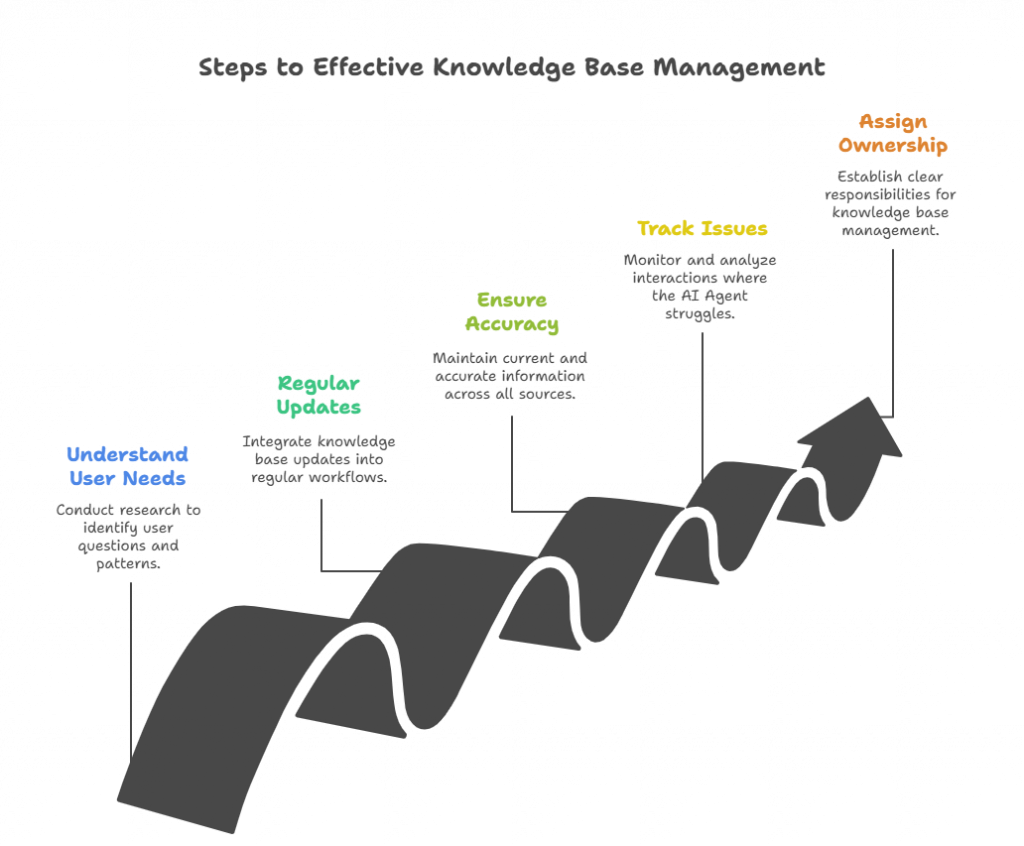
The real business impact
Companies that manage their Knowledge Bases well see measurable results:
Customer satisfaction goes up because people get helpful answers immediately. Support ticket volume goes down because Agents handle routine questions. Your support team can focus on complex issues that actually need human expertise.
But here’s what many companies don’t expect: good Knowledge Base management also improves your internal operations. When employees can ask an Agent about company policies, procedures, or product information, they work more efficiently too.
Technical considerations
You don’t need to be a technical expert to manage Knowledge Bases effectively, but there are some things worth knowing:
Work with what you have
Look for platforms that connect with your existing systems. If you use specific tools for documentation, customer support, or content management, your AI Agent platform should be able to work with those tools.
Different content types
Your Knowledge Base will include different types of information – text documents, PDFs, website content, maybe even chat logs. Make sure your platform can handle all the formats you actually use.
Measuring success
How do you know if your Knowledge Base management is working? Look at these metrics:
- How often does your Agent successfully answer questions?
- Are customer satisfaction scores for Agent interactions good?
- Is your support ticket volume decreasing for routine questions?
- How quickly can you update your Agent when business information changes?
Track these numbers over time. They’ll show you whether your Knowledge Base management is helping your business or just creating busy work.
Building the right habits
The companies that succeed with AI Agents treat knowledge management as part of their culture, not just a technical requirement.
Your team needs to understand that keeping documentation current isn’t just nice to have – it directly affects customer experience. When someone updates a product feature, they should think about whether the Agent needs to know about it too.
This cultural shift doesn’t happen overnight, but it’s worth building. Companies with good knowledge-sharing habits get much better results from their AI Agents.
What’s coming next
AI Agent knowledge management keeps getting better. We’re starting to see platforms that can automatically extract knowledge from conversations, identify gaps before they become problems, and even predict what information Agents will need.
But all of these advanced features build on the basics: having good information and keeping it current. Companies that get this foundation right now will be ready to take advantage of new capabilities as they become available.
Getting started with Knowledge Base management
If you’re ready to build an AI Agent that actually helps your customers, start with your existing information. Your website, documentation, and support materials probably contain most of what you need.
The Tars platform makes it easy to get started. Connect your existing knowledge sources, and you can have a working Agent quickly. Then focus on building the processes to keep that knowledge current and comprehensive.
Don’t try to make everything perfect before you launch. Start with what you have, deploy your Agent, and improve based on real customer interactions. You’ll learn more from one week of real usage than months of theoretical planning.
Final thoughts
Knowledge Base management might not be the most exciting part of building AI Agents, but it’s definitely the most important. Your Agent’s intelligence comes directly from the quality and accuracy of the information you give it.
The good news is that you probably already have most of the knowledge your Agent needs. You just need to organize it, keep it current, and make sure your Agent can access it effectively.
Companies that treat their knowledge as a valuable business asset – and invest in managing it properly – build AI Agents that customers actually love using. The choice is yours, but the results speak for themselves. Good Knowledge Base management isn’t just about better AI Agents. It’s about building a better business.
A writer trying to make AI easy to understand.
- What is a Knowledge Base?
- How Knowledge Bases work in Tars?
- Why Knowledge Bases matter for AI Agents?
- What well-trained Agents can actually do?
- Why you need to keep updating your Knowledge Base?
- When you need to update your Knowledge Base
- How to manage your knowledge base effectively?
- Start with user needs
- Make it a regular process
- Keep your source materials accurate
- Track what’s not working
- Assign ownership
- The real business impact
- Technical considerations
- Work with what you have
- Different content types
- Measuring success
- Building the right habits
- What’s coming next
- Getting started with Knowledge Base management
- Final thoughts


Build innovative AI Agents that deliver results
Get started for freeRecommended Reading: Check Out Our Favorite Blog Posts!
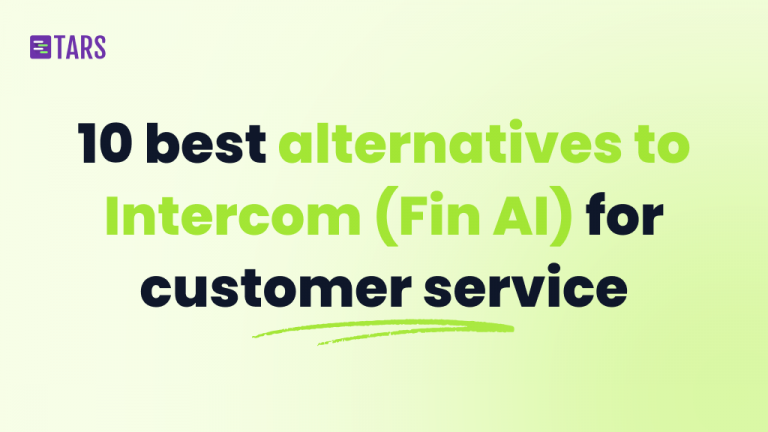
10 best alternatives to Intercom (Fin AI) for AI-powered customer service [2025]
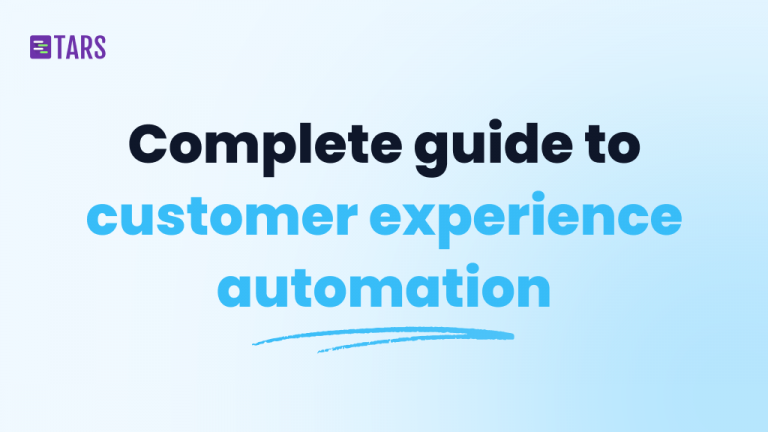
Customer experience automation: The complete guide to CXA in 2025
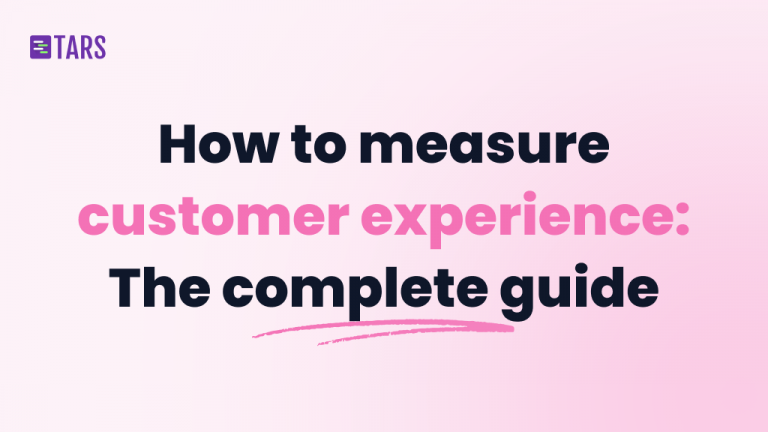
How to measure customer experience: The complete guide for AI-powered support and growth

Our journey in a few numbers
With Tars you can build Conversational AI Agents that truly understand your needs and create intelligent conversations.
years in the conversational AI space
global brands have worked with us
customer conversations automated
countries with deployed AI Agents



